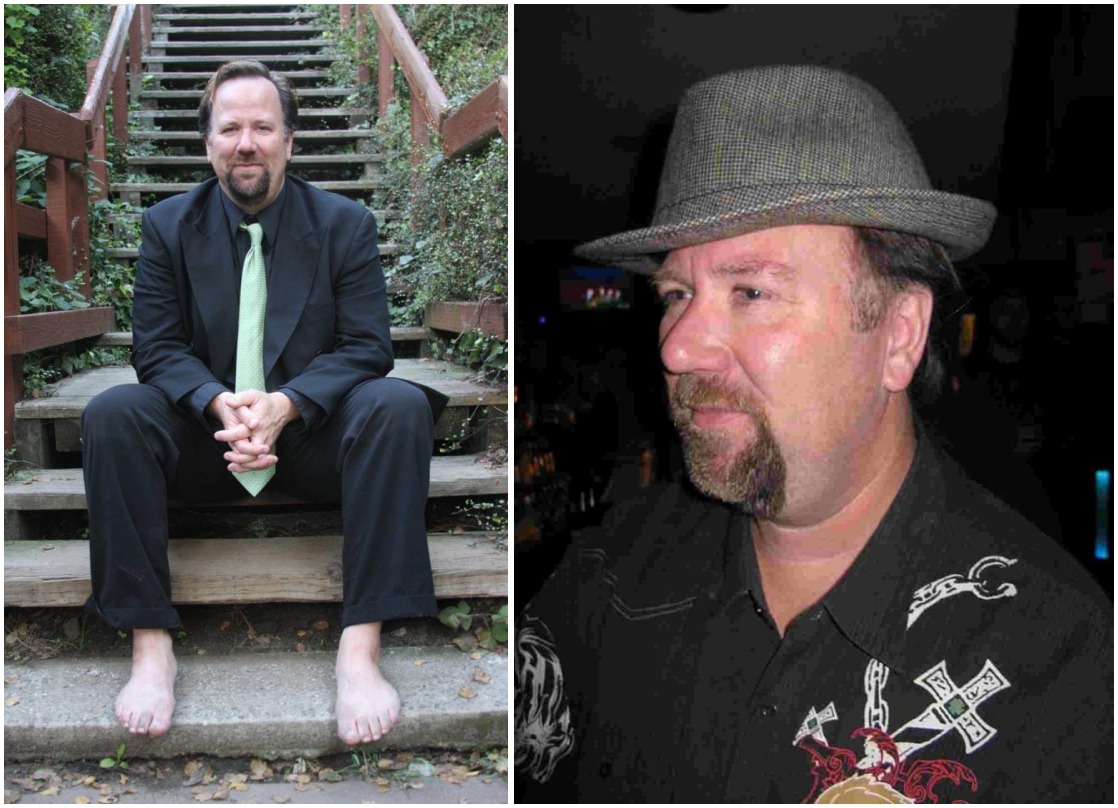Guggenheim Entertainment
December 7, 2019
 |
| Shannon Guggenheim as Cindy Lou Who |
If you're low on Christmas cheer
Mixing egg nog with your beer
Don't feel the need to join a cult
Just come see something more adult
The drama folks at 3Below
Are offering quite a naughty show
That asks a question strange and new:
What became of Cindy Lou?
The cutesy tot who caught the Grinch
Stealing Whoville's every inch
Is older now, ever soused
And living in a trailer house
Just released from the county pen
She hosts a bash for all her friends
But one by one they all cop out
From Fox in Sox to ol' Doubt Trout
So instead she pours some gin
Plays some tunes and fills us in
On what befell her since that night
Her greenfaced Santa gave her fright
Our hostess, Shannon Guggenheim
Is mighty skillful with a rhyme
But much more fully makes us laugh
On all those time she makes a gaffe
She's awfully fun with dance and song
And even lets us sing along
Or stops so we can end a line
Or brings up Jason for some wine
Once to play a rhyming game
She asked us for some animal names
But stuffed a couple 'neath her pillow
When up came aardvark and armadillo
In the end what's really fine
Is to feel the show is yours and mine
To party there with Cindy Lou
The sparkliest of all the Whos
Be forewarned this ain't for kiddies
Stuffy shirts or touchy biddies
But if you're done with sappy shit
This show is sure to be a hit
So crack those Nuts and Messy Sings
Turtle doves and golden rings
Why not party Cindy's way
And learn what grew three sizes that day
Through Dec. 22, 3Below Theaters, 288 S. Second St, San Jose. 3belowtheaters.com, 408/404-7711.
Michael J. Vaughn is a widely published poet and novelist. His most recent novel, A Painting Called Sylvia, is currently #11 on Amazon's free literary fiction list.
Last year's review (for non-rhyming reference)...

Who’s Holiday
3Below Theaters
December 7, 2018
If you think the latest Grinch cartoon was entirely unnecessary, and what you’d really like to see is the whole enterprise blown up in a raunchy, comic explosion, then Who’s Holiday is your ticket. Matthew Lombardo’s script, written in perfect Seussian couplets, visits Cindy Lou Who in middle age, trying to get any of her Whoville friends to come to her holiday party but beset by a checkered past that has made her a bit of an outcast. All the better, since we get to have her to ourselves.
The Avenue Q-ness of the play is evident right away, as Cindy Lou recounts that fateful night: “…but I caught him green-handed as he was stealing our shit!” Her tale proceeds to her 18th birthday, when she discovers something else that grew three sizes that day (“If you think black guys are hung, try going jade”).
Our hostess is Shannon Guggenheim, who is 3Below’s Miss Everything (including librettist of their awesome Meshuga Nutcracker musical). She dispenses quickly with the fourth wall, and third wall, and a little of the second, throwing in regular asides and a running commentary on the challenges of stagework. Much of the fun is in the rhyming. When she rhymes “Christmas” with “isthmus,” she takes an educational timeout to provide a detailed geographical definition. Later, when she flubs a rhyme, she says, “Hey! This shit is hard.” And then she has to deal with an audience volunteer who seemed to think he was at an old-school hip-hip rhymeoff (he was good, but he was making us nervous).
To say Guggenheim is delightful doesn’t really say enough. She is an absolute natural onstage, and her Cindy Lou is sexy, funny, and ingratiating. She even makes us a little sad, singing “Blue Christmas” for her estranged green-skinned daughter (who’s off touring as Elphaba in “Wicked”). In short, she’s exactly the kind of woman you’d like to hang out with at a party. And to hell with those sanctimonious Who’s!









































